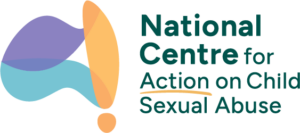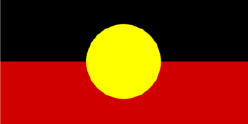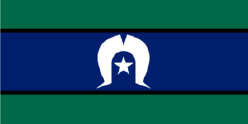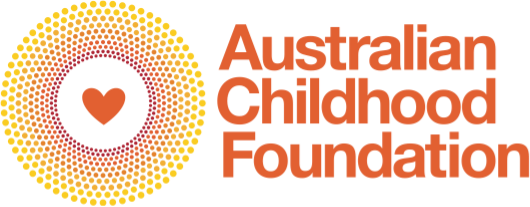Active Research
Ngagagee Ngulu Murrup Durra (‘The Ngagagee project’)
- Understanding child sexual abuse
- Disclosure of child sexual abuse
- Needs of victims and survivors
- Prevention of child sexual abuse
- Response to child sexual abuse
Research Topic areas
- Community awareness
- Cultural components of healing and recovery from child sexual abuse
- Drivers of child sexual abuse
- Mental health
- Other
- Therapeutic responses
Project Duration
Start: April 2023
End: December 2027
Geographical Scope
VIC
Populations
Victims and survivorsWorkforceFirst Nations community members
Young adults (18-25 years)Adults (26-65 years)Older adults (>65 years)
Gender
All genders
Project Lead
Associate Professor Graham Gee, Murdoch Children's Research Institute
Project lead email: graham.gee@mcri.edu.au
Project Team
Professor Helen Milroy, University of Western Australia
Helen Kennedy, Murdoch Children's Research Institute
Jordan Gibbs, Murdoch Children's Research Institute
Denise Sweet, Murdoch Children's Research Institute
Professor Stephanie Brown, Murdoch Children's Research Institute
Carly Black, Murdoch Children's Research Institute
Dr Laura Biggs, Murdoch Children's Research Institute
Cat Lloyd-Johnsen, Murdoch Children's Research Institute
Stella Mulder, Murdoch Children's Research Institute
Background
‘Ngagagee Ngulu Murrup Durra’ means ‘Hear us: Our voices, spirit and heart’ in Woiwurrung, the language of the Wurundjeri Peoples.
This 5-year project focuses on the experiences and healing needs of Aboriginal and Torres Strait Islander survivors of child sexual abuse in Victoria, Australia. The project has been developed in collaboration with six key Victorian Aboriginal organisations currently supporting the healing of survivors, their families and communities. These are: Safe Pathways to Healing Sexual Assault Prevention Working Group, Yoowinna Wurnalung Aboriginal Healing Service, Ballarat and District Aboriginal Co-operative (BADAC), Victorian Aboriginal Health Service (VAHS), Victorian Aboriginal Child Care Agency (VACCA) and Victorian Aboriginal Community Controlled Health Organisation (VACCHO).
The project will be conducted in three phases or ‘Platforms’ of research. Platform 1 is focused on supporting the Victorian workforce dedicated to Aboriginal and Torres Strait Islander survivors. Platform 2 will be co-designed with survivors and draw on their experiences and insights to better understand what is needed to enable healing and recovery. Platform 3 will focus on supporting communities.
Our approach in this research is underpinned by Indigenous research methodologies including Dadirri (‘deep listening,’ gifted by Dr Miriam Rose Ungunmerr Baumann) and the research principles outlined by Professor Lester Irabinna-Rigney: resistance as the emancipatory imperative in Indigenous research; political integrity in Indigenous research; and privileging Indigenous voices in research.
This 5-year project focuses on the experiences and healing needs of Aboriginal and Torres Strait Islander survivors of child sexual abuse in Victoria, Australia. The project has been developed in collaboration with six key Victorian Aboriginal organisations currently supporting the healing of survivors, their families and communities. These are: Safe Pathways to Healing Sexual Assault Prevention Working Group, Yoowinna Wurnalung Aboriginal Healing Service, Ballarat and District Aboriginal Co-operative (BADAC), Victorian Aboriginal Health Service (VAHS), Victorian Aboriginal Child Care Agency (VACCA) and Victorian Aboriginal Community Controlled Health Organisation (VACCHO).
The project will be conducted in three phases or ‘Platforms’ of research. Platform 1 is focused on supporting the Victorian workforce dedicated to Aboriginal and Torres Strait Islander survivors. Platform 2 will be co-designed with survivors and draw on their experiences and insights to better understand what is needed to enable healing and recovery. Platform 3 will focus on supporting communities.
Our approach in this research is underpinned by Indigenous research methodologies including Dadirri (‘deep listening,’ gifted by Dr Miriam Rose Ungunmerr Baumann) and the research principles outlined by Professor Lester Irabinna-Rigney: resistance as the emancipatory imperative in Indigenous research; political integrity in Indigenous research; and privileging Indigenous voices in research.
Aims
The aims of Platform 1 are:
1 To strengthen the wellbeing and capacity of the workforce supporting Aboriginal and Torres Strait Islander survivors of child sexual abuse.
2 To build a Victorian workforce understanding of the experiences and processes of healing in relation to child sexual abuse from Aboriginal and Torres Strait Islander perspectives.
1 To strengthen the wellbeing and capacity of the workforce supporting Aboriginal and Torres Strait Islander survivors of child sexual abuse.
2 To build a Victorian workforce understanding of the experiences and processes of healing in relation to child sexual abuse from Aboriginal and Torres Strait Islander perspectives.
Methods
Platform 1 includes the following:
1 A scoping review of Indigenous peoples’ experiences of healing and recovery from child sexual abuse (see https://www.mdpi.com/1660-4601/21/3/311)
2 Development of a grounded theory of healing for Aboriginal and Torres Strait Islander survivors from a workforce perspective.
3 Development of a resource for organisations working with Aboriginal and Torres Strait Islander survivors based on insights shared by project participants.
4 Provision and evaluation of a Community of Practice for practitioners working in this complex space.
1 A scoping review of Indigenous peoples’ experiences of healing and recovery from child sexual abuse (see https://www.mdpi.com/1660-4601/21/3/311)
2 Development of a grounded theory of healing for Aboriginal and Torres Strait Islander survivors from a workforce perspective.
3 Development of a resource for organisations working with Aboriginal and Torres Strait Islander survivors based on insights shared by project participants.
4 Provision and evaluation of a Community of Practice for practitioners working in this complex space.
Significance and Dissemination
International research suggests that child sexual abuse is disproportionately reported among communities experiencing health inequities, political and social inequality and systemic discrimination. These issues are highly relevant for Aboriginal and Torres Strait Islander peoples and the impacts of child sexual abuse are of concern to many communities. The literature emphasises that, in addition to focusing on individual healing and recovery, there needs to be far greater investment in social and structural change and First Nations-led initiatives.
This study aims to provide new insights into healing and recovery for Aboriginal and Torres Strait Islander survivors, their families and communities. In addition to a focus on healing, we are committed to contributing what we can through this research to the prevention of child sexual abuse in Aboriginal and Torres Strait Islander communities.
We anticipate the following outcomes from Platform 1:
1 An overview of current documented knowledge about Indigenous peoples’ experiences of healing and recovery from child sexual abuse, including barriers and enablers to disclosure, access to services and cultural components of healing and recovery.
2 Practice-based evidence for promising cultural and therapeutic approaches that support Aboriginal and Torres Strait Islander survivors of child sexual abuse and documentation of core elements of practice specific to Aboriginal healing services.
3 Preliminary evidence about how to strengthen workforce wellbeing in this area of work.
4 A theory of healing relevant to Aboriginal and Torres Strait Islander survivors of child sexual abuse.
Outputs will include workshop and community reports, practice briefs, community and academic presentations and peer-reviewed journal articles.
We anticipate this work being disseminated both within Australia and internationally. We have a strong interest in connecting with other First Nations researchers working in this area.
This study aims to provide new insights into healing and recovery for Aboriginal and Torres Strait Islander survivors, their families and communities. In addition to a focus on healing, we are committed to contributing what we can through this research to the prevention of child sexual abuse in Aboriginal and Torres Strait Islander communities.
We anticipate the following outcomes from Platform 1:
1 An overview of current documented knowledge about Indigenous peoples’ experiences of healing and recovery from child sexual abuse, including barriers and enablers to disclosure, access to services and cultural components of healing and recovery.
2 Practice-based evidence for promising cultural and therapeutic approaches that support Aboriginal and Torres Strait Islander survivors of child sexual abuse and documentation of core elements of practice specific to Aboriginal healing services.
3 Preliminary evidence about how to strengthen workforce wellbeing in this area of work.
4 A theory of healing relevant to Aboriginal and Torres Strait Islander survivors of child sexual abuse.
Outputs will include workshop and community reports, practice briefs, community and academic presentations and peer-reviewed journal articles.
We anticipate this work being disseminated both within Australia and internationally. We have a strong interest in connecting with other First Nations researchers working in this area.
Further Details
Share project
Funding body:
NHMRC, Eisen Family Private Fund. Platform 1: $500,000.
NHMRC, Eisen Family Private Fund. Platform 1: $500,000.
Australian Human Research Ethics Committee:
Royal Children's Hospital HREC
Royal Children's Hospital HREC
Related posts: Understanding child sexual abuse
Prevention of child sexual abuse
Accessibility of child sexual abuse prevention in Australia
Susan Rayment-McHugh
Sexual Violence Research & Prevention Unit, University of the Sunshine Coast
Sexual Violence Research & Prevention Unit, University of the Sunshine Coast
Nadine McKillop
Sexual Violence Research & Prevention Unit, University of the Sunshine Coast
Sexual Violence Research & Prevention Unit, University of the Sunshine Coast
Prevention of child sexual abuse
From bystanders to allies: a structural feminist perspective for supporting child victims and adult survivors of child rape and torture.
Emma Rees
Queensland University of Technology
Queensland University of Technology






